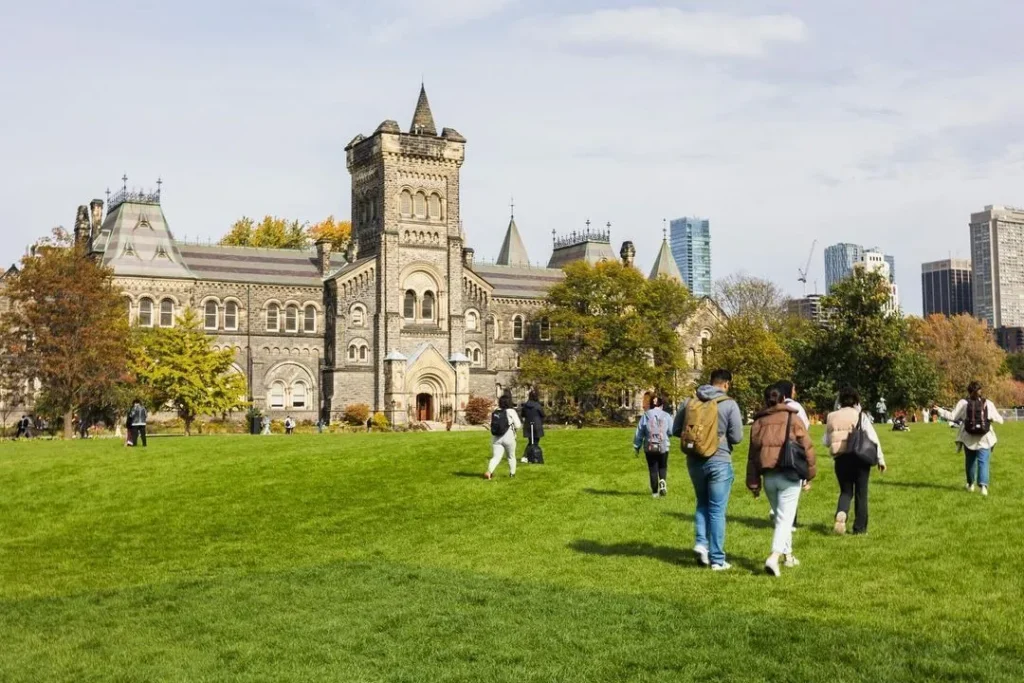As the inauguration of Donald Trump for his second term as president of the United States approaches, scheduled for January 20, 2025, American universities have stepped up efforts to protect and guide their international students. The possibility of drastic changes to immigration policies, a hallmark of Trump’s first administration, has raised growing concerns among students and administrators. In response, several institutions have issued statements and held events to clarify doubts and prepare students for the impending changes.
One of the most widely shared recommendations is for international students currently abroad to return to the United States before the presidential inauguration. Institutions such as New York University (NYU) and the University of Massachusetts Amherst (UMass) have led this initiative, sending official alerts and organizing meetings to discuss the potential impact of new immigration policies.

At NYU, for example, the Global Services Department, which assists students with visa and immigration issues, sent an official email urging all international students to return to the U.S. by January 19, 2025, one day before the inauguration. The university emphasized that although no immediate changes to immigration policies have been confirmed, the recommendation is being made as a precaution, considering the Trump administration’s history of implementing abrupt travel restrictions in 2017.
“The moment is one of uncertainty, and we want to ensure our students can begin the semester without issues or interruptions. Although there have been no concrete announcements of changes, we are closely monitoring the situation and will inform you of any updates. It is prudent to be in the U.S. before the presidential transition to avoid potential complications,” stated NYU’s communication.
UMass followed a similar approach, posting an alert on its official website from the Global Services Department. The university reiterated that the recommendation is based on precautions and lessons learned during Trump’s first term, when travel restrictions were suddenly imposed, catching many by surprise. “Although this is not an official requirement, it is a preventive measure to protect our students from potential changes that may occur immediately after the inauguration,” the statement read.
Universities are not acting without reason. During his first term, Trump implemented highly controversial immigration measures, including the ban on entry for citizens from Muslim-majority countries, citing the need to protect the U.S. from terrorism. This executive order, known as the travel ban, caused chaos at airports and was the subject of intense legal battles.
Trump’s anti-immigration rhetoric has also been a source of concern. During his 2024 presidential campaign, he repeatedly made inflammatory statements, claiming that immigrants were “poisoning the soul” of the country. While many of his campaign promises focus on deporting undocumented immigrants, academic communities fear the scope of these policies could expand to affect international students and professionals.
In light of this climate of uncertainty, universities have invested in forums and informational events to support their international students. On November 12, NYU hosted a meeting involving faculty from the Law School, who highlighted the potential risks of new government actions. According to the experts present, institutions focused on diversity and inclusion programs may face legal challenges under the new administration, while the mass deportation promises made during the presidential campaign are seen as a real possibility.
Other universities, such as Harvard, Stanford, and UCLA, have also organized informational sessions to address questions about visas, rights, and how to respond to potential legislative changes. Additionally, many institutions have increased their offering of legal services and psychological support to address the anxiety generated among international students.
The growing concern about immigration rhetoric and policies not only affects students but also fuels debates about the role of universities as spaces of inclusion and diversity. Academic leaders have emphasized the importance of protecting the international community, which plays a crucial role in advancing research, innovation, and global collaboration.
“International students are an essential part of our academic community. It is our duty to ensure they feel safe and supported during these uncertain times,” said the president of one of the Ivy League universities.
Although it is still unclear what exactly Trump’s second term will bring, the history of his previous administration serves as a reminder of the impact that sudden changes can have on the international community. For many students, returning to the United States before the inauguration is seen not only as a safety measure but also as a way to prepare for potential challenges ahead.
As the date of January 20 approaches, tension continues to rise. However, universities remain committed to protecting their international students and ensuring that, regardless of political changes, they can continue to pursue their academic and professional goals in the United States.
The alert issued by American universities to their international students reflects not only concern about potential political changes under Trump’s second administration but also the commitment of these institutions to protect and support their academic communities. In a time of great uncertainty, universities have positioned themselves as spaces of welcome and information, seeking to minimize the impact of policies that may restrict the mobility and rights of international students.
Moreover, the institutions’ efforts to anticipate scenarios and provide legal and emotional support demonstrate the importance of a proactive approach. For international students, these actions serve as a reminder that even in the face of a challenging political climate, there are still support networks in place to ensure their academic and life plans can continue.
Regardless of what the new Trump administration will implement, the international academic community will remain a vital pillar for innovation and cultural exchange in the United States. The proactive response from universities signals that they are prepared to face the challenges ahead, maintaining their commitment to diversity, inclusion, and academic excellence.

